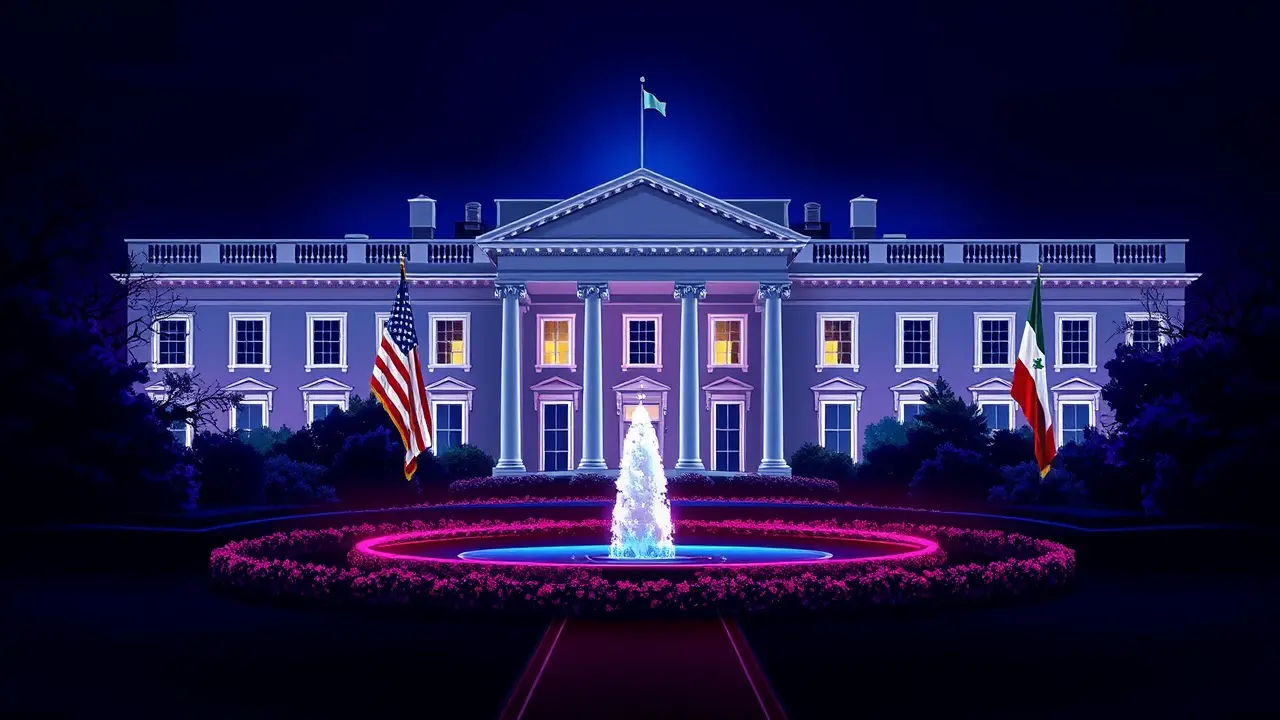
PoliticsdiplomacyDiplomatic Visits
Syrian official visits US for White House talks.
RO
Robert Hayes
4 hours ago7 min read
In a development that signals a potential, albeit cautious, recalibration of one of the world's most entrenched diplomatic standoffs, a high-level Syrian official is scheduled to meet the US President at the White House on Monday for pivotal security talks. This is not merely a routine diplomatic exchange; it is a tremor on the geopolitical seismograph, the first encounter of its kind at such an elevated level in over a decade of brutal civil war, regional proxy conflicts, and profound mutual hostility.The context is everything. For years, American policy toward the Damascus regime, under the enduring leadership of Bashar al-Assad, has been defined by isolation, crippling sanctions, and a firm demand for a political transition away from his rule—a stance solidified in the aftermath of chemical weapons attacks and widespread atrocities.Yet, the immutable landscape of international relations is shifting beneath our feet. The persistent stalemate, the grinding war in Ukraine redirecting global attention and resources, and the pragmatic, if uncomfortable, need to address shared threats like the residual presence of ISIS cells and the destabilizing influence of other external powers in Syria, have collectively forced a reassessment in Washington.One can draw a historical parallel to the Nixon administration's overture to China—a move once deemed unthinkable, driven not by affection but by cold, strategic necessity to rebalance a complex global board. Similarly, these White House talks are less about reconciliation and more about realpolitik management.The agenda will undoubtedly be narrow and sharply focused: counter-terrorism cooperation, the precarious situation in al-Hol camp, the mechanisms to prevent a security vacuum, and perhaps tacit understandings on containing Iranian entrenchment. The consequences are multifaceted.For the Assad regime, this represents a long-sought legitimacy, a crack in the wall of its pariah status that it will eagerly exploit. For US allies in the region, particularly the Kurdish-led Syrian Democratic Forces (SDF) who bore the brunt of the fight against ISIS with American support, there is profound anxiety.Will their security be a bargaining chip? For Russia and Iran, this is a test of their own influence, as Washington steps back into a arena they have come to dominate. Expert commentary is already divided.Some analysts see this as a necessary, if distasteful, step toward stabilizing a fractured nation and creating a viable off-ramp from perpetual conflict. Others warn vehemently of moral hazard, arguing that engaging Assad without concrete, irreversible concessions on human rights and political reform rewards atrocity and betrays the aspirations of the Syrian people. The meeting itself will be cloaked in stringent protocols, but its mere occurrence is the true headline—a stark admission that the previous policy of maximum pressure has reached its limits, and a new, more nuanced, and undoubtedly controversial chapter in US-Syria relations is being reluctantly drafted.
#featured
#Syria
#United States
#diplomatic talks
#sanctions lifted
#White House meeting
#security talks
Stay Informed. Act Smarter.
Get weekly highlights, major headlines, and expert insights — then put your knowledge to work in our live prediction markets.
Related News
© 2025 Outpoll Service LTD. All rights reserved.














